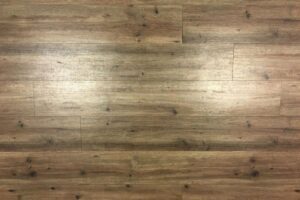In the realm of flooring options, engineered hardwood flooring stands out as a versatile and durable choice that combines the timeless appeal of hardwood with modern construction techniques. In this guide, we’ll delve into the intricacies of engineered hardwood flooring, exploring its composition, durability, maintenance requirements, pricing, and versatility.
Understanding Engineered Hardwood
Layering
Engineered hardwood flooring is akin to a hybrid between traditional hardwood and laminate flooring. It comprises multiple layers, with each layer serving a distinct purpose. At its core, a typical engineered hardwood plank consists of a bottom layer crafted from moisture-resistant hardwood. This layer ensures the flooring’s resilience, particularly in humid environments such as kitchens and bathrooms. On top of the base layer lies a veneer made of real hardwood, providing the flooring with its authentic appearance. Sandwiched between these layers are multiple plywood layers, contributing to the flooring’s stability and structural integrity.
Durability
One of the key advantages of engineered hardwood flooring is its durability. With a lifespan of up to 30 years or more, engineered hardwood rivals traditional hardwood in longevity. Its robust construction not only withstands the rigors of daily use but also offers superior resistance to moisture and scratching. Unlike solid hardwood, engineered hardwood is less susceptible to expansion and contraction, making it a practical choice for areas prone to moisture exposure.
Maintenance
Maintaining engineered hardwood flooring is a breeze. Regular upkeep simply involves using a mop and vacuum to keep the surface clean. Thanks to its moisture-resistant properties, engineered hardwood dries quickly, eliminating concerns about prolonged drying times. While vacuuming is permissible, it’s advisable to ensure that the vacuum’s bristles are not abrasive, as they can potentially scratch the surface. Promptly wiping up spills is recommended to prevent moisture from seeping into the flooring, although engineered hardwood offers greater tolerance to moisture compared to solid hardwood.
Price Point
Engineered hardwood flooring typically ranges from $4 to $15 per square foot, making it a cost-effective alternative to solid hardwood flooring. While it may entail a lower initial investment than solid hardwood, engineered hardwood boasts comparable aesthetics and durability. Moreover, its lower susceptibility to staining and sealing requirements further enhances its cost-effectiveness.
Versatility
One of the standout features of engineered hardwood flooring is its versatility. Offering an extensive array of wood species, including oak, cherry, maple, and walnut, engineered hardwood allows homeowners to achieve their desired aesthetic while benefiting from enhanced durability and moisture resistance. Whether you prefer the rustic charm of oak or the refined elegance of cherry, engineered hardwood can cater to diverse design preferences.
Conclusion: Elevate Your Space with Engineered Hardwood Flooring

Engineered Hardwood Flooring – Nadine Floor Company
In conclusion, engineered hardwood flooring represents a harmonious blend of style, durability, and affordability. Its innovative construction delivers the timeless beauty of hardwood while addressing common concerns such as moisture resistance and maintenance. Whether you’re renovating your kitchen, bathroom, or living room, engineered hardwood offers a practical and visually appealing flooring solution.
Frequently Asked Questions (FAQs)
1. How does engineered hardwood differ from solid hardwood flooring?
Engineered hardwood features a layered construction comprising a veneer of real hardwood atop plywood layers, whereas solid hardwood is crafted from a single solid piece of wood. Additionally, engineered hardwood offers enhanced moisture resistance and dimensional stability.
2. Can engineered hardwood be refinished?
While engineered hardwood can be refinished, it’s essential to exercise caution due to its thin veneer layer. Over-refinishing can potentially compromise the veneer, necessitating expert guidance to ensure optimal results.
3. Is engineered hardwood suitable for high-moisture areas like bathrooms and kitchens?
Yes, engineered hardwood is well-suited for humid environments such as bathrooms and kitchens due to its moisture-resistant properties. Unlike solid hardwood, engineered hardwood is less prone to warping or cupping when exposed to moisture.
4. What maintenance measures are recommended for engineered hardwood flooring?
Routine maintenance involves using a mop and vacuum to keep the surface clean. Promptly wipe up spills to prevent moisture penetration, and avoid abrasive cleaning tools that may scratch the surface. Regular inspections can help identify and address any signs of wear or damage.
5. How does the cost of engineered hardwood compare to other flooring options?
Engineered hardwood typically falls within a moderate price range, offering a balance between affordability and aesthetic appeal. While it may entail a higher upfront cost than laminate or vinyl flooring, engineered hardwood offers superior durability and authenticity, making it a worthwhile investment in the long run.
For top-quality engineered hardwood flooring products and expert installation services, look no further than Nadine Floor Company. Our team of flooring specialists in Plano,TX is dedicated to providing tailored solutions to meet your specific needs. From free estimates to flawless installations, we’re committed to transforming your space with premium flooring solutions. To learn more about engineered hardwood flooring or schedule a consultation, contact Nadine Floor Company at (469) 666-4530 today!
